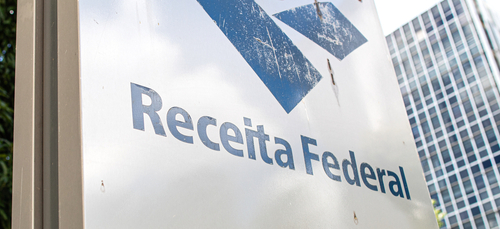Contumaz contumaz: succession of programs harms the good taxpayer
Those who are on the lookout for advantages in order to continue to harm the tax authorities and fair competition are the persistent debtors, who set up their business so that they will never pay taxes intentionally.

It is undeniable that the Brazilian taxpayer, legal entity or individual, faces a real tangle of laws, decrees, acts and normative regulations related to taxes, which makes it difficult to understand the intricate tax process, generating growing dissatisfaction for taxpayers who wish to fulfill their obligations. , increasing the juridical insecurity which particularly harms the business environment and the attraction of investments.
Study sponsored by Brazilian Institute of Competitive Ethics (ETCO), carried out by the international consultancy EY, shows that we are discussing in the administrative and judicial instances, only in federal debts, 3,4 trillion reais. When debts are added in the state and municipal spheres, the estimates point to more than 5 trillion reais!
In addition to this unusual situation, which harms good taxpayers and also the treasury, we still have a Tax Burden highest in comparison to countries of the same level of development, burdening companies and the whole of society. We pay a lot and have a low return on services. An anachronistic situation.
This reality increases defaults and, in view of the permanent need of the Tax Authorities to increase the collection, stimulates the institution of Federal Tax Debt Installment Programs, popularly known as Refis. It is not without reason that since the year 2000 we have had at least five of these initiatives in general. On average, every three years we have a program with this profile.
The succession of installments has been criticized by experts in the tax area. Among other arguments, the following can be highlighted: reduced tax collection, with an increase in tax liabilities; inefficiency; disruption of the system, stimulating default in anticipation of the approval of a new installment plan; discouraging taxpayers who comply with their obligations; illegitimate use by those who use non-payment of taxes as a business model.
Without deepening criticism, the moment we live in, with the pandemic draining public resources, from companies and people, is at stake the survival of the entire economy. In the face of the tragedy that enters the second year, the initiative of the President of the Federal Senate, to have a new tax regularization program finds fertile ground, which is easy to justify.
An instrument that can serve both sides of the tax relationship - streamline the payment of taxes, which is extremely necessary for a relief to the treasury and improve the situation of taxpayers hard hit by the shock caused by the tragedy of the covid-19.
However, as has already happened in other Refis, it is necessary not to forget those who are always on the prowl to take advantage of worthy purposes, to support the taxpayer in difficulty, to obtain advantages in order to continue to harm the tax authorities and fair competition. These are the so-called persistent, “smart” debtors who set up their business by structuring it so that they will never pay taxes. He is not a taxpayer who is in difficulty or who, facing a more serious economic situation, repeatedly fails to fulfill his obligations. He is persistent, his very high profit is the result of recurrent tax evasion, eroding competitiveness and competitive ethics, causing billionaire losses to the tax authorities and therefore to society. This structured default, in the fuel and tobacco sectors alone, accumulates active debts of 100 billion reais.
It is crucial to combat this predatory practice. With this objective there is the bill in the Federal Senate (PLS nº 284/2017), ready to be voted, which defines who should be considered a regular debtor. This law will provide greater legal certainty in tax relations, reducing the scope for the performance of organized actions of continued tax evasion.
Thus, in this dramatic moment, the proposal for a restructuring of tax debts cannot be a stimulus for spurious behavior on the part of those who take advantage of legitimate measures to once again become involved.
The Brazilian legislature must pay attention to this reality and not allow a legitimate initiative to be distorted.
For this reason, the reopening of yet another Special Tax Regularization Program (Pert) should not include debtors who have been excluded from two or more tax debt installment programs.



